Here’s a surefire way to know if there is an alligator in the water where you are in Florida. 1) Stick your hand in the water, 2) Pull your hand out, 3) Look at your hand, 4) If your hand is wet, there’s a gator in the water. Ha. Ha. Ha. Although this is a joke (kinda), when people think of Florida, the thought of gators is not usually far behind. For Floridians, gator hunting is not just something we saw on Swamp People; it is another hunting season to get excited for and as women, another opportunity to come together and show people that ladies hunt, too.
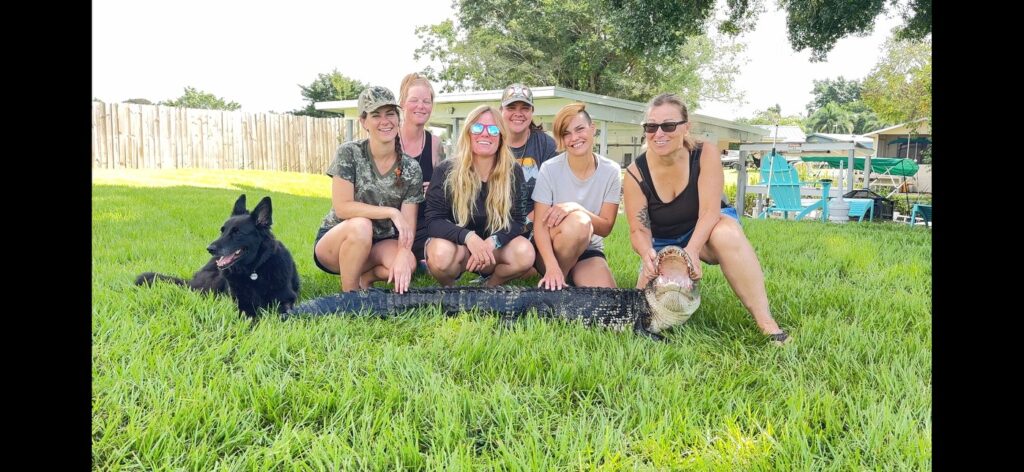
Curious about alligator hunting? Read on!
It’s always advisable before you go hunting to know what you are hunting, amongst other things you should know or research. Aside from the general knowledge and safety concerns, you respect the hunt and the animal more if you have some background.
Alligators come from the Alligatoridae family. While there are eight species, only two we actually refer to as “alligators,” the American and Chinese alligator. Since we’re not in China, the gator we will be focusing on is (drumroll, please,) the American alligator. American alligators are truly incredible and such an honor to interact with and hunt in the wild. Found in the coastal wetlands of the U.S. Southeast, alligators range can extend up to NC (whoa!) They can grow over 12 feet in length and greater than 1,000 pounds!
Read More: Stargazing – The Sensation of Stars
Every part of their body has adapted over millions of years to be apex predators in their environment. From the body armor that lines their backs to their famous strong jaws and tails, gators deserve our respect. Although they don’t actually start producing until about 10-12, they can live over 50 years in the wild. Once threatened by extinction, alligators were put on the endangered species list and thankfully have made a comeback with numbers well into the millions. Like most animals, their biggest threat is humans and habitat destruction leaving them vulnerable to decreasing numbers once more.
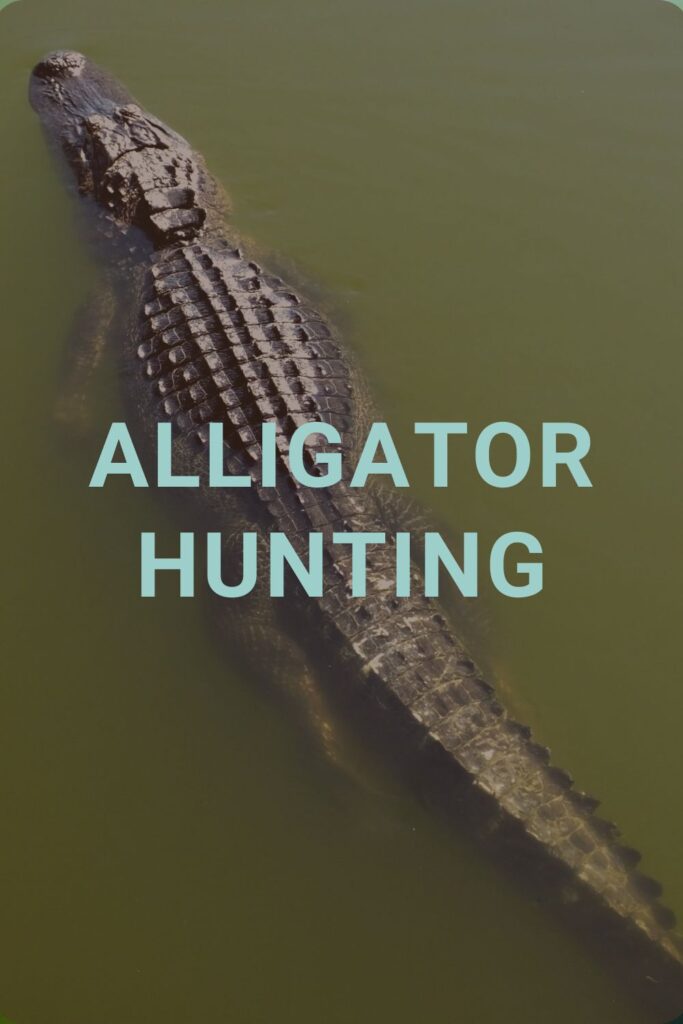
Now that we have our daily biology lesson, let’s talk gator hunting.
Florida alligator hunting uses a lottery system, and unlike some lottery system that incorporates “points” for each year you apply, this is a random lottery. If you’re the four-leaf clover type of lucky, this could be to your benefit. During selection, you can choose 12 locations or permits to apply for. It’s certainly not a sure thing, however. Each year, almost double the number of people than tags are available to apply for gator tags. If you want to gator hunt, it’s important to know the different hunt areas, permits given, and previous harvests to give yourself the best chance of being successful.
Now what?
Congrats! You got a permit with your two tags, now what? Grab your best gals (or guys) and start preparing. Gator hunting is social so you will be peopleing throughout the process. These friends can hunt with you if they purchase an alligator trapping license or can just come with and observe for the fun (but may not partake in the hunt). Although some areas have special hours, gator hunting in Florida is 24/7. Yet, remember, gators are nocturnal and it can be extra fun to be out with them at night. Plus, who doesn’t love an evening boat ride?
As with most things, there are rules of engagement. No, you may not just shoot it with a rifle. No, you may not bait it with a hook. Yes, you may bait it (with a wooden peg). Yes, you may hook it. Yes, you may use a bang stick to dispatch it. Before you go, know the rules, and have a plan. Get your equipment in order and have extras! Not only can you harvest two gators but sh** happens and you may need backups. Communicate with the people you are hunting with. What is your strategy? Who will be doing what? When you have a gator on a line and mass chaos ensues, it’s good for everyone to ensure no one goes overboard (yikes!) and everyone stays safe. Alligator eyes reflect light, a good headlight goes a long way in gator hunting. Practice, practice, practice! Know how to use what you are bringing! This is all good to have worked out on dry land but use the time on the boat to reinforce your skills, as well.
Once you hook the gator, there is no textbook scenario. You may get it, you may lose it. Once you are successful, celebrate! Well, tag the gator THEN celebrate. Thank the animal, high five/hug the people you are with. Afterwards, you will do the things: get the gator on ice (take a nap), and get it processed. In the moment, be present. Since you probs do not need this gator to feed your family, have fun.
Remember, it is about the experience, interacting with the wild, and engaging with people. If you have the opportunity to go on an all-ladies hunt like I did – TAKE IT! I met women that I would never have made connections with and learned more about hunting and about myself than I ever thought I would. We sat under the stars, saw rocket launches, and gazed at the Milky Way. There were storms (literally and figuratively), and there was sunshine. If you are a first-timer, be curious. Ask questions. Just try. Don’t be afraid to practice, to screw up, to ask for advice. In lady hunts, in particular, teamwork makes the dream work. No extra brawn; everyone pitches in. Everyone brings the knowledge. Everyone wants the group to succeed. Finding camaraderie with other women in hunting is magical. If you’re hunting with our male allies, bring that spark to them. Then, while you’re enjoying your gator tacos, recount the story and plan your next hunt!
Commonly Asked Questions About Gator Hunting
Is it legal to hunt alligators in the US?
Yes, alligator hunting is legal in certain parts of the U.S., but it’s strictly regulated. States like Florida, Louisiana, and Texas offer controlled hunting seasons and require permits. These measures ensure sustainable populations and protect the species from overhunting.
How much do alligator hunters make?
Alligator hunters’ earnings vary widely, depending on the size of the alligator, location, and market demand for hides and meat. Professional hunters can make anywhere from a few hundred to several thousand dollars per season, but most hunting is not considered highly profitable.
Why does Florida allow alligator hunting?
Florida allows alligator hunting to manage the alligator population, prevent human-wildlife conflicts, and protect the environment. With a growing number of alligators, controlled hunting helps maintain a balance between the species and the surrounding ecosystem while supporting conservation efforts.
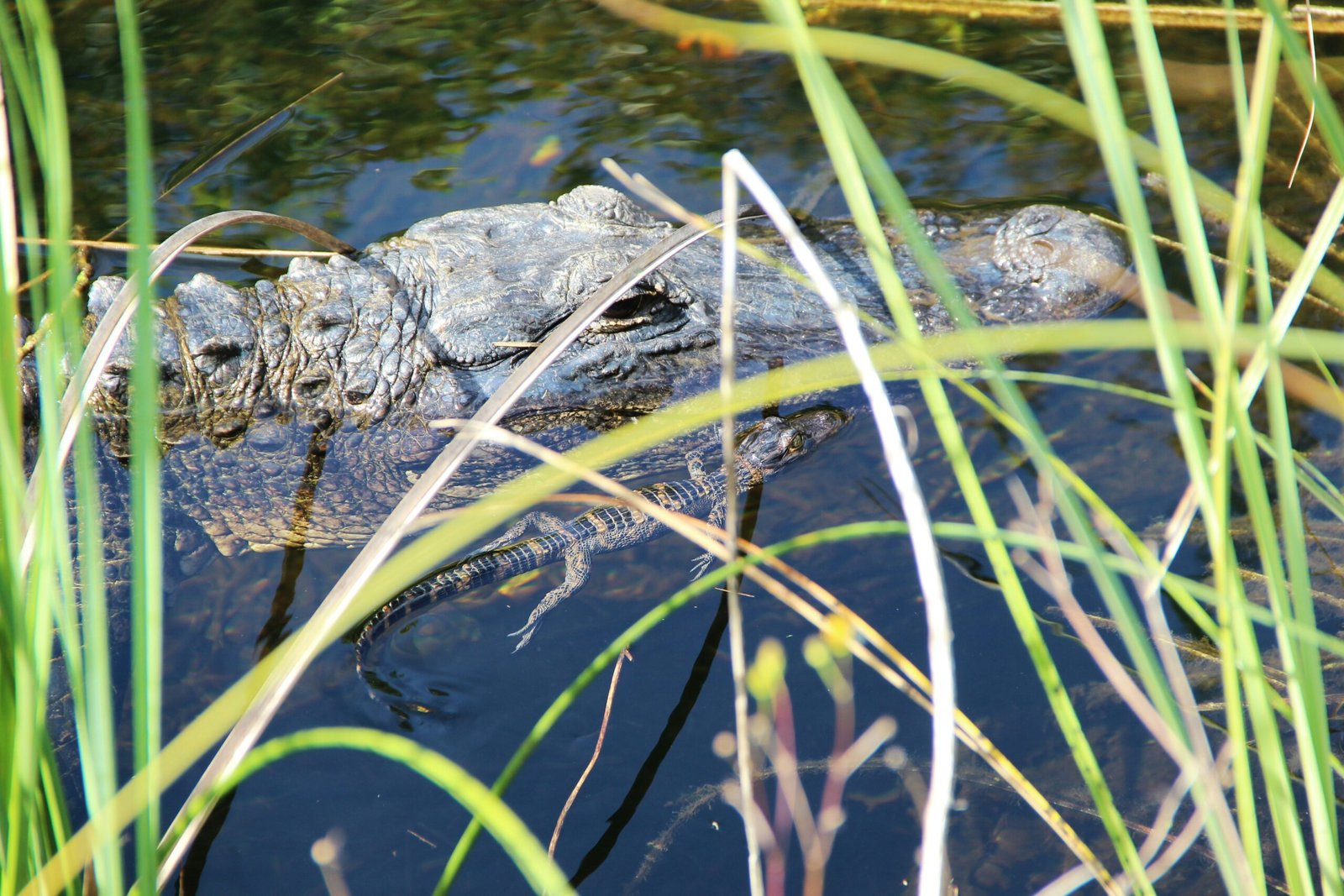
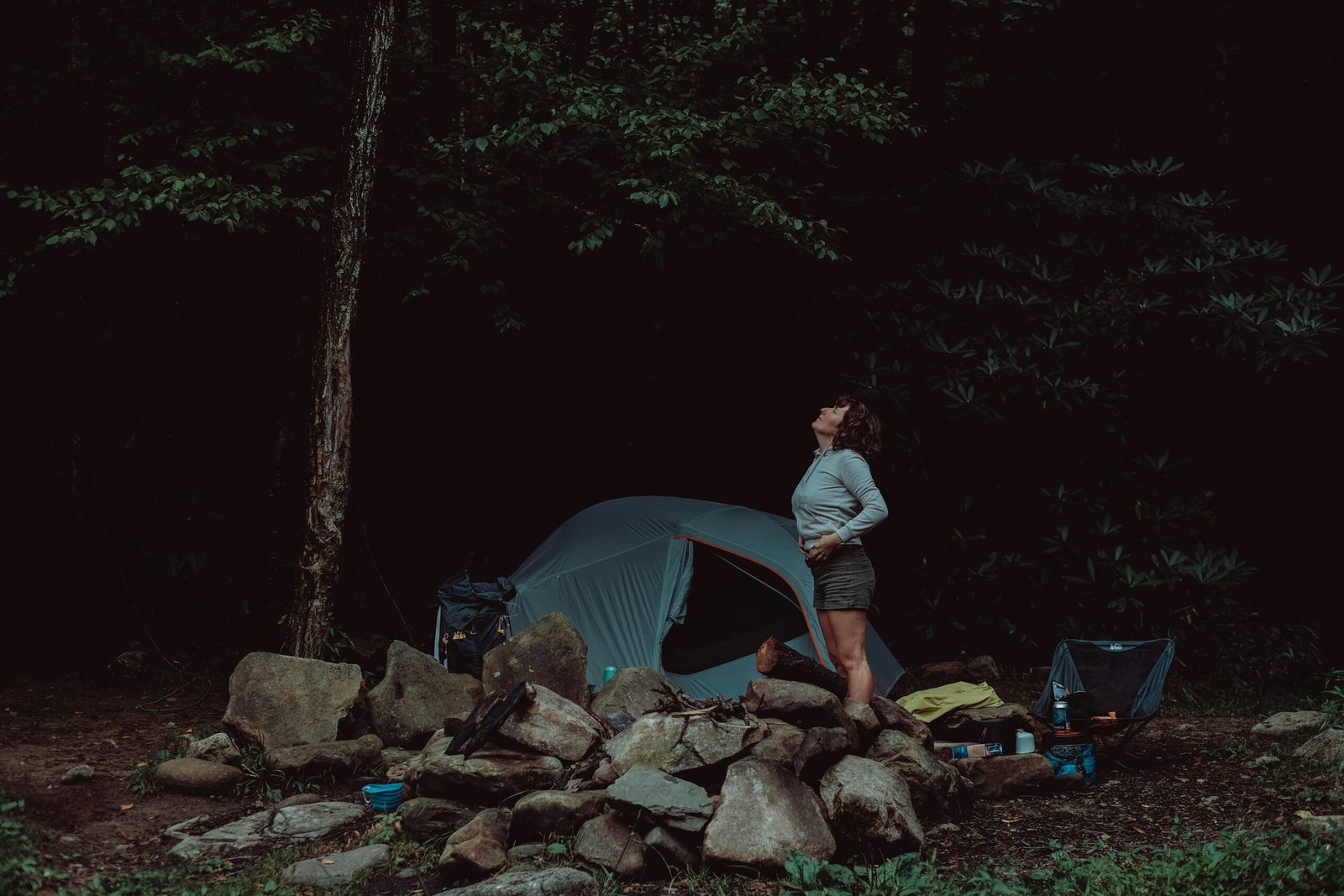
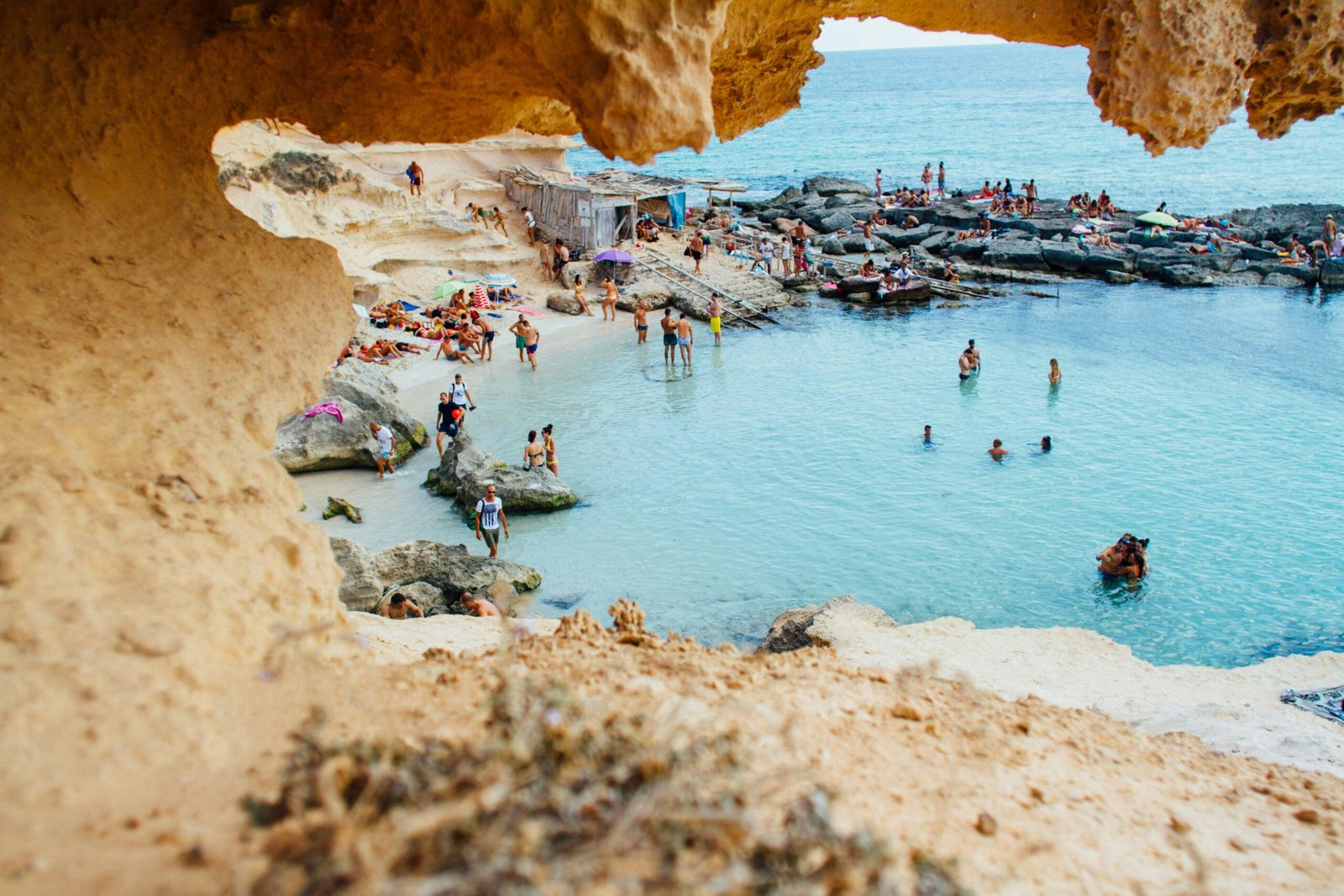


One thought on “Alligator Hunting: Ladies Edition”